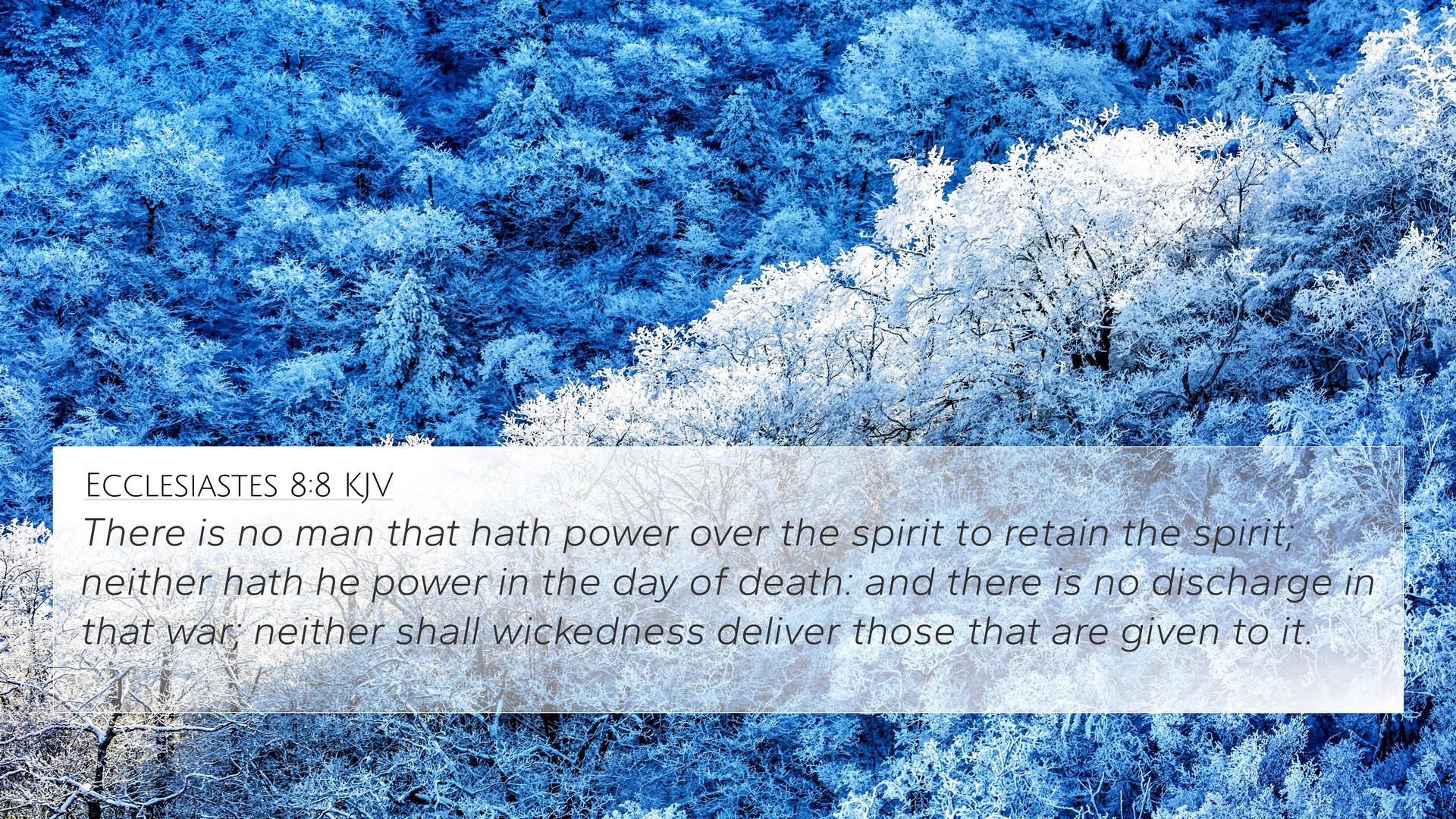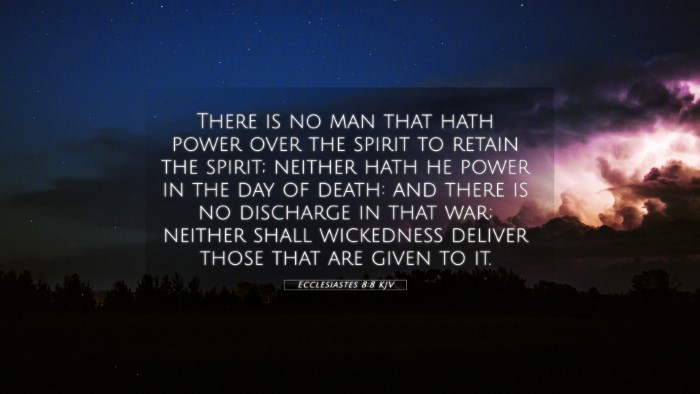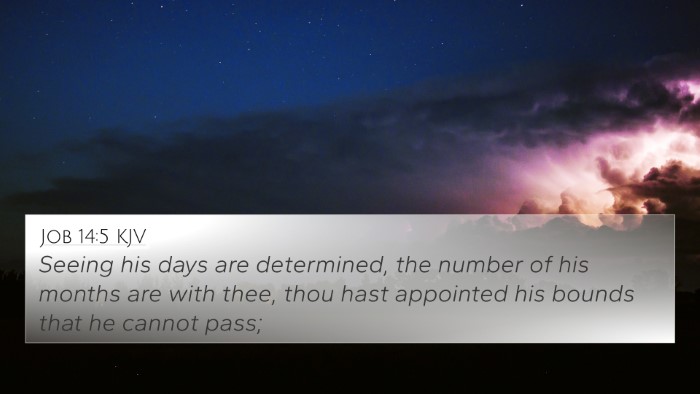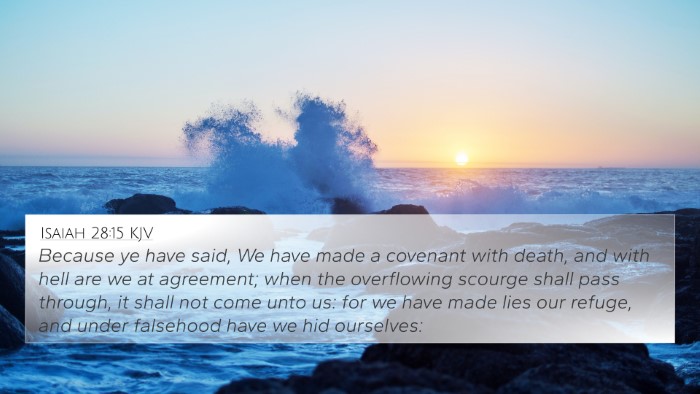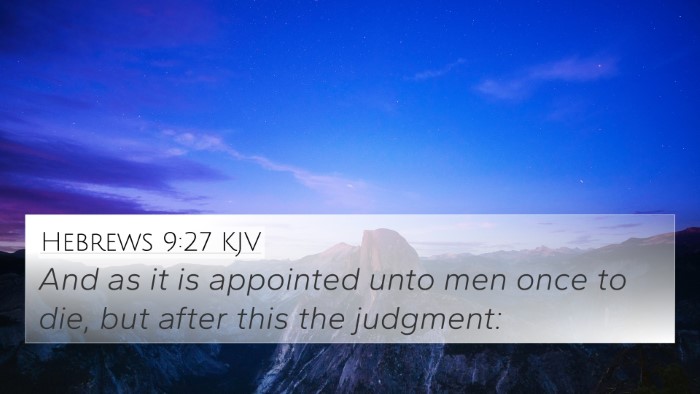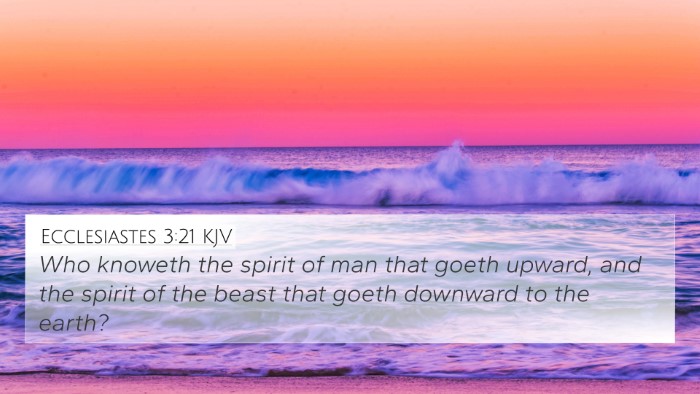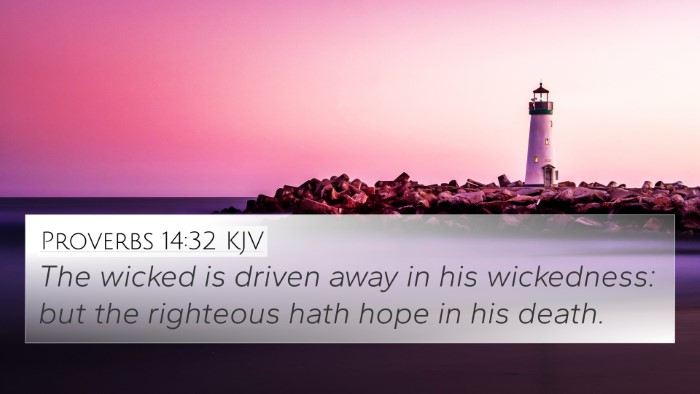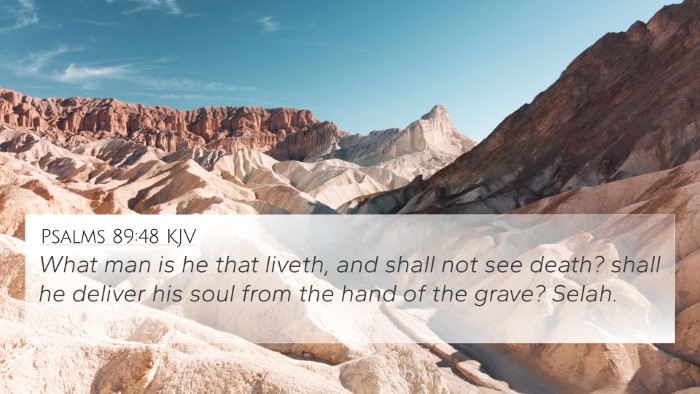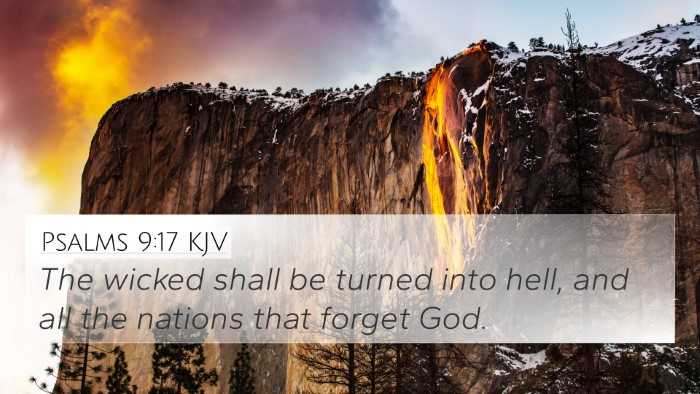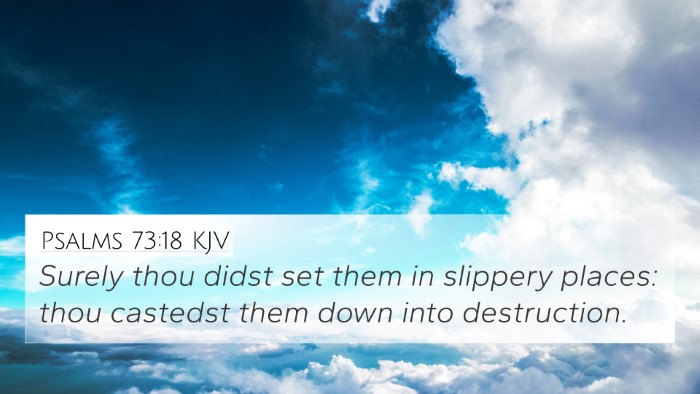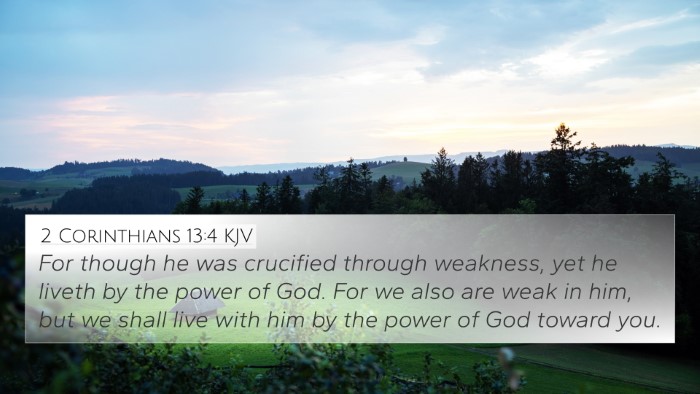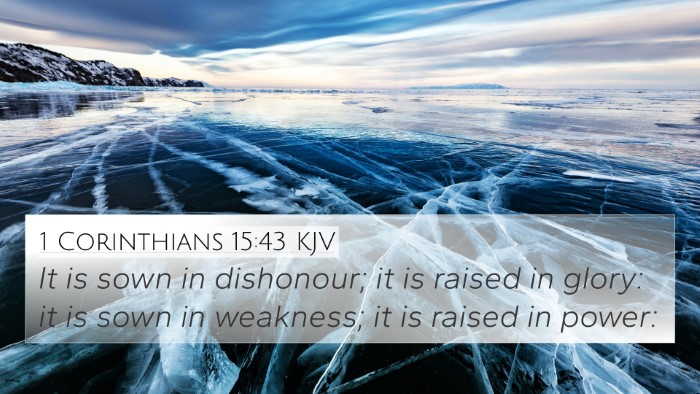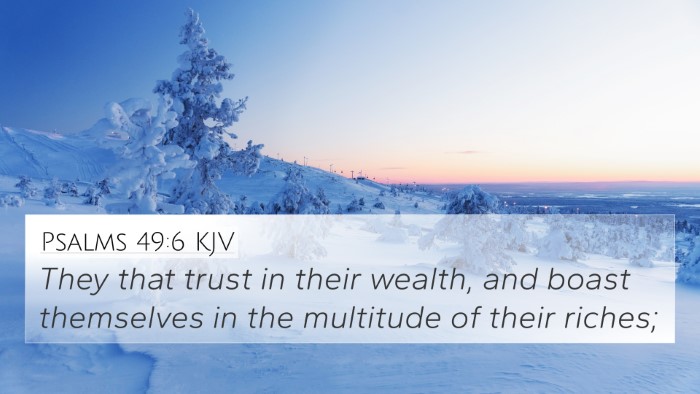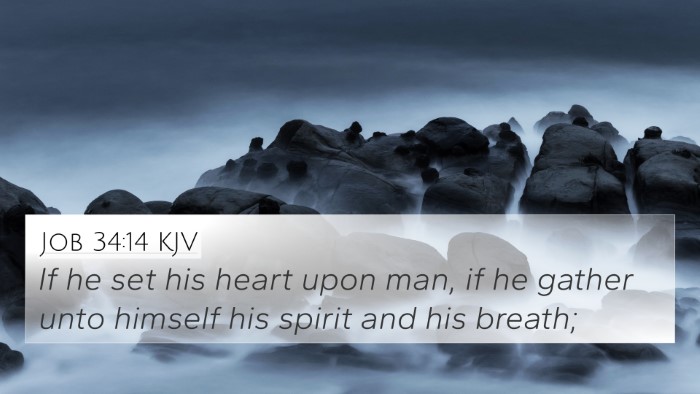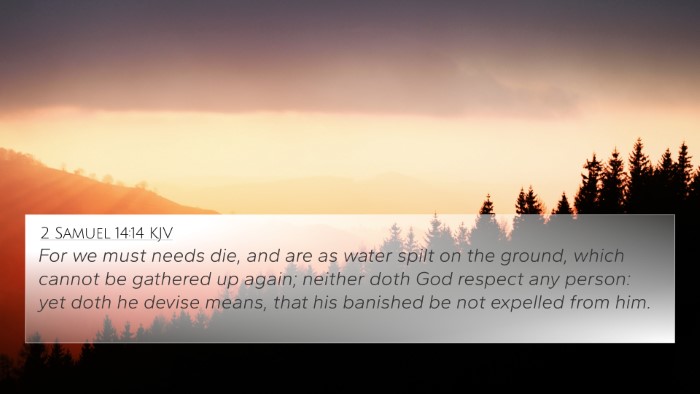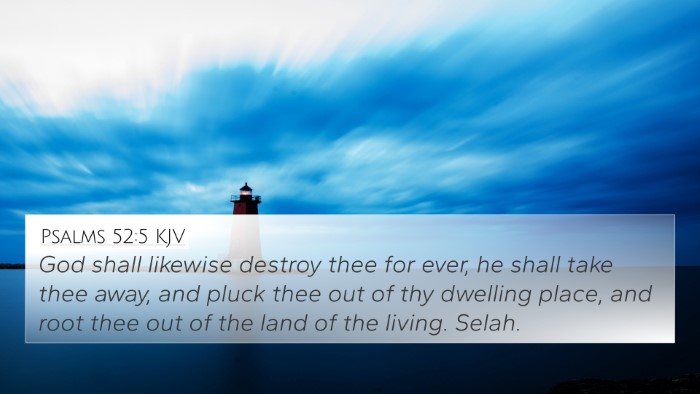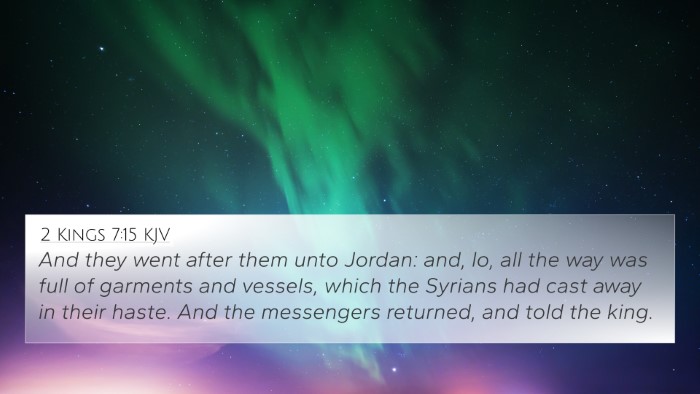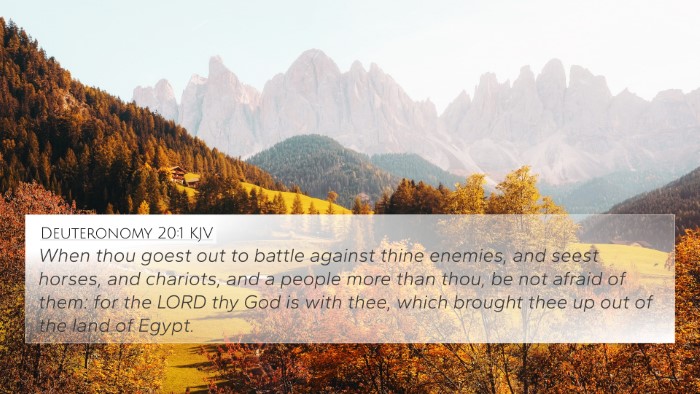Understanding Ecclesiastes 8:8
Ecclesiastes 8:8 states: "No man has power over the spirit to retain the spirit, and no man has power in the day of death: and there is no discharge in that war; neither shall wickedness deliver those who are given to it."
Summary of Insights
This verse highlights the limitations of human power and the inevitability of death. It serves as a reminder that everyone, regardless of their status or strength, is subject to the greater realities of life and death. The context of this verse encourages readers to reflect on the transient nature of life and the futility of trying to escape death.
Commentary Insights
- Matthew Henry: Henry emphasizes that the verse points to the futility of human attempts to control the soul or cheat death. He suggests that no one can withstand or negotiate their way out of death’s grasp. This underscores the need for humility and recognition of human limitations.
- Albert Barnes: Barnes highlights the inevitability of death, stating that no person can avoid it. He interprets the reference to "war" as a metaphor for the struggles of life, where ultimately, no victory can be claimed over death, reinforcing the theme of human vulnerability.
- Adam Clarke: Clarke elaborates on the concept of the "spirit" and equates it with the essence of life. He argues that the verse establishes that once life ceases, all human power is rendered moot. Ultimately, he notes the contrasting nature of righteousness and wickedness, suggesting that ultimately, wrongdoers will find no refuge from death.
Bible Verse Cross-References
Understanding Ecclesiastes 8:8 can be enhanced through the following cross-referenced Bible verses:
- Hebrews 9:27: "And just as it is appointed for man to die once, and after that comes judgment," highlighting the inevitability of death.
- Job 14:5: "Since his days are determined, and the number of his months is with you, and you have appointed his limits that he cannot pass," which reaffirms human limitations in controlling life.
- Psalm 39:4-5: "O Lord, make me know my end and what is the measure of my days; let me know how fleeting I am!" emphasizing the brevity of life.
- Ezekiel 18:30: "Therefore I will judge you, O house of Israel, every one according to his ways, says the Lord GOD. Repent and turn from all your offenses, so sin will not be your downfall," reflecting on the moral accountability in life despite its finitude.
- 1 Corinthians 15:26: "The last enemy to be destroyed is death," illustrating the ultimate conquest of death through Christ but acknowledging its reality.
- James 4:14: "What is your life? For you are a mist that appears for a little time and then vanishes," reinforcing the transient nature of existence.
- Luke 12:20: "But God said to him, 'Fool! This night your soul is required of you, and the things you have prepared, whose will they be?'" dealing with the unexpectedness of death.
Thematic Bible Verse Connections
Ecclesiastes 8:8 resonates with a variety of themes permeating the Scriptures:
- The Inevitability of Death: Many verses discuss death's certainty and our need for preparedness, such as Matthew 24:44.
- The Powerlessness of Humanity: Verses like Psalms 103:15-16 remind us of our fleeting existence and God's eternal nature.
- Morality and Judgment: The connection between life choices and eternal consequences is illustrated in Galatians 6:7-8.
Cross-Referencing Biblical Texts
Ecclesiastes 8:8 provides a critical junction for understanding the connections between various Biblical texts:
- Every reflection on mortality in scripture invites personal introspection, urging believers to consider their purpose and actions.
- Logically linking Ecclesiastes to the ultimate triumph of Christ over death, found in Revelation 21:4, denotes hope amidst the mentioned futility of life.
Cross-Referencing Psalms with New Testament Teachings
Looking at how Ecclesiastes' themes cross-reference with the Psalms and New Testament teachings shows a rich inter-Biblical dialogue:
- Psalms 90:12: “So teach us to number our days that we may get a heart of wisdom,” aligns closely with the themes of mortality in Ecclesiastes.
- 1 Peter 1:24: "All flesh is like grass and all its glory like the flower of grass," which emphasizes the temporal nature of life.
Conclusion
Ecclesiastes 8:8 teaches us profound truths about life, death, and the limitations that accompany our existence. By understanding this verse through cross-references and the insights provided by public domain commentaries, readers can gain a more comprehensive understanding of its meaning and implications in their lives.
